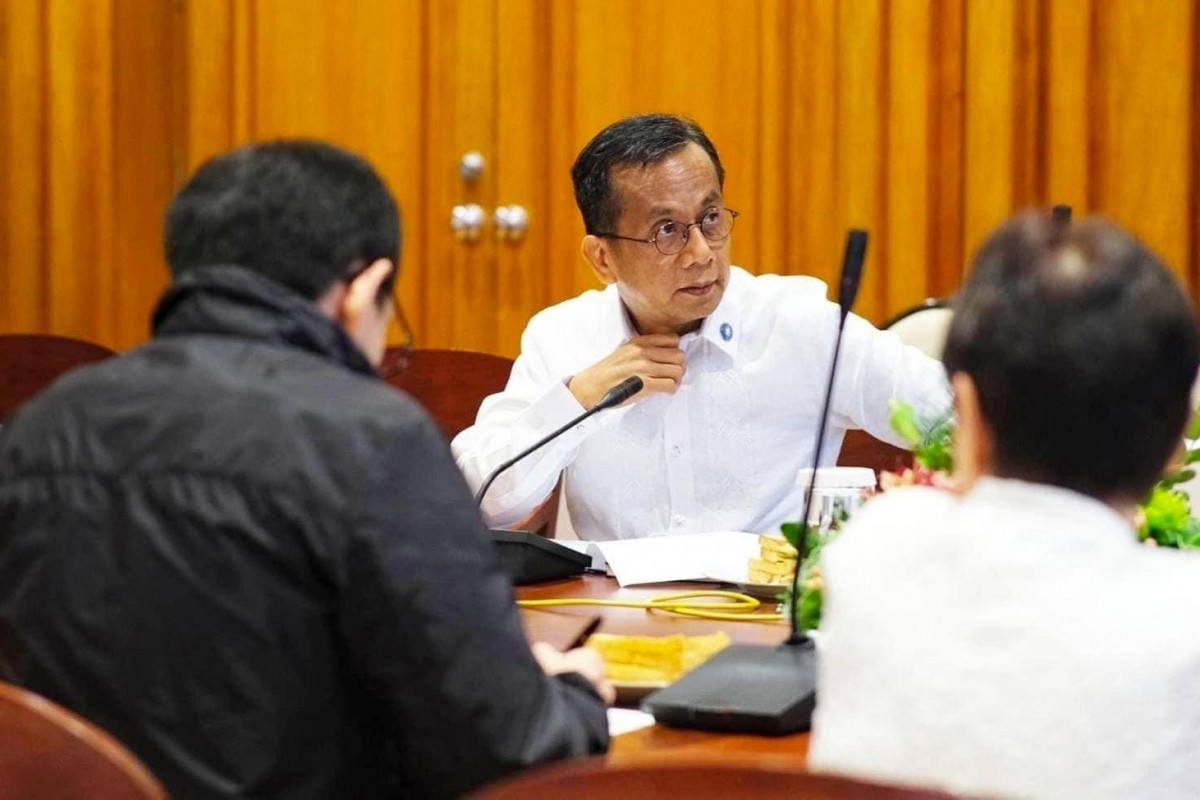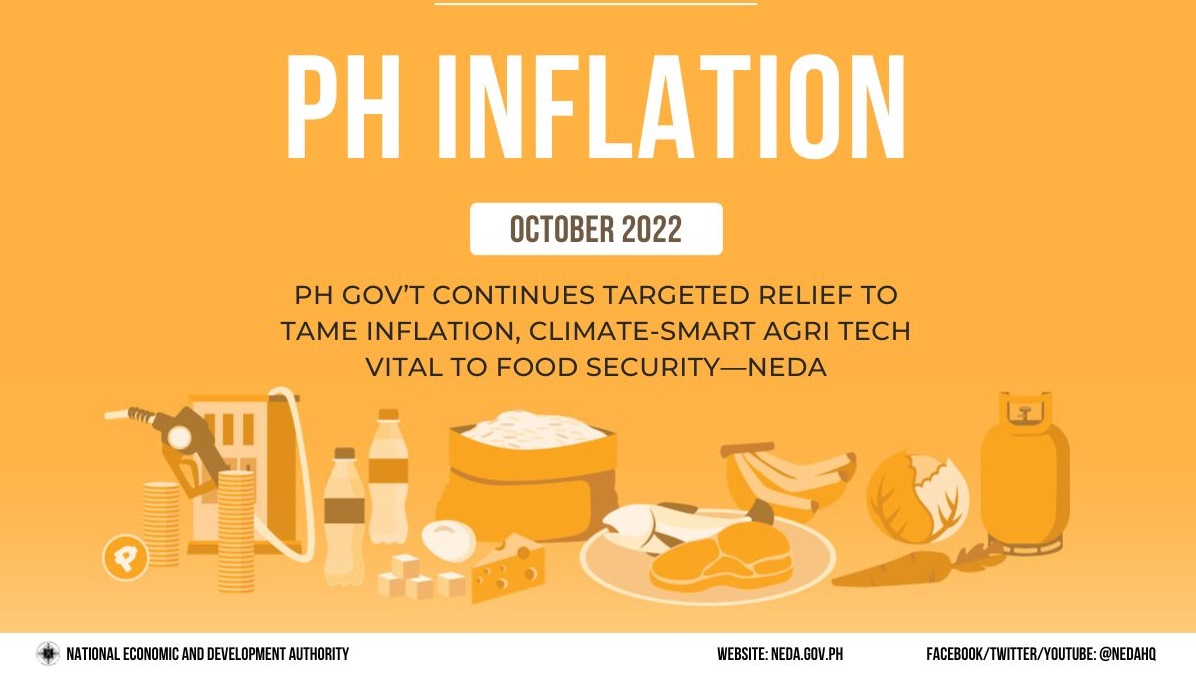QUEZON CITY (PIA) -- While Filipinos may be concerned over a 7.7 percent inflation rate announced by the Philippine Statistics Authority (PSA) for this past October, the Bangko Sentral ng Pilipinas (BSP) has emphasized that this figure remains well within their forecast range of 7.1 to 7.9 percent.
The BSP has projected inflation to likely ease in 2023, due to changes in global prices and the BSP's own concerted efforts toward policy rate adjustments.
“Addressing high inflation is the number one priority of the economic team,” Department of Finance (DOF) Secretary Benjamin Diokno said in a recent statement. He attributed inflation developments to the impact of recent storms and other weather disturbances in the Philippines on food supply, as well as global price, supply chain, and peace and security issues.
Meanwhile, National Economic and Development Authority (NEDA) Secretary Arsenio M. Balisacan has reiterated the importance of providing timely assistance to those hardest hit by inflation. Still on-going are targeted support programs by the government, including cash transfers, fuel subsidies for transport workers, fuel discounts for farmers and fisherfolk, and social pensions for indigent senior citizens.
At the same time, to further protect the Philippine economy from inflationary forces down the line, the Marcos Jr. administration aims to pursue its medium-term strategy to invest in technologies and systems to improve local economic and community resilience. In particular, Sec. Balisacan envisioned the implementation of climate-adaptive agricultural technologies and strengthening of value chains. He also highlighted President Marcos Jr.'s priority legislative measure to create a Department of Water Resources to oversee the use and supply of water and mitigate the risks of water-induced disasters.
The administration has likewise worked to address supply issues by improving local production and distribution efficiency, ensuring the timely importation of key commodities including fertilizers and raw materials, and ensuring energy security.
To further enhance Philippine food security despite unprecedented worldwide challenges, President Marcos Jr.'s economic team is also currently seeking the continuation of reduced tariff rates on staples and raw materials such as rice, corn, and coal.
“We would like to assure the public that the Philippine government is closely monitoring the inflation and possible inflation pressures," Sec. Balisacan said. "We continue to prioritize and proactively manage these issues by providing immediate assistance and enabling timely reports to augment domestic food production, while building the resilience of families, communities and the economy." (PMD)





